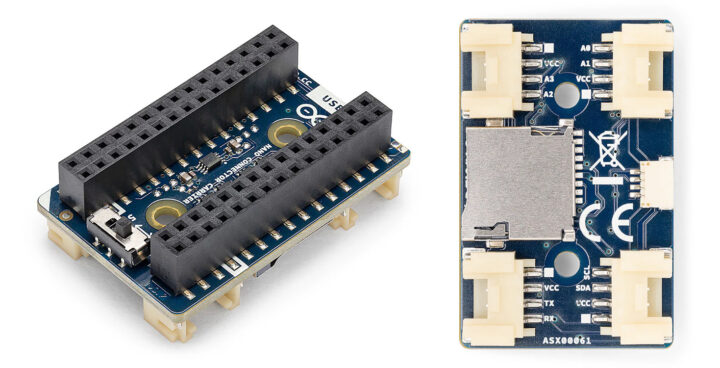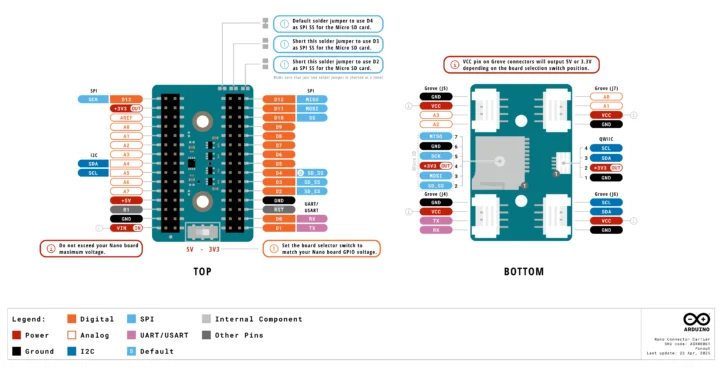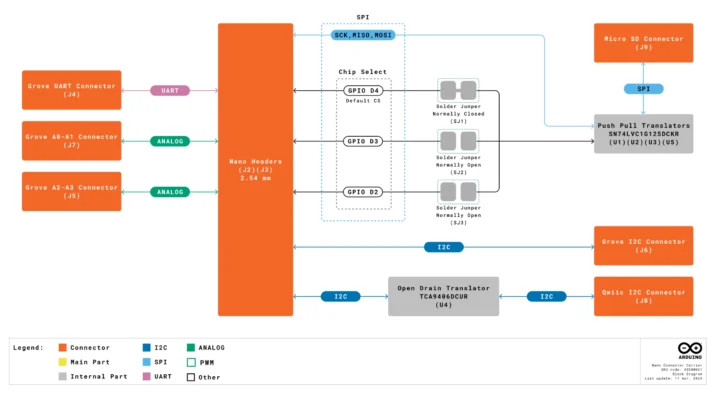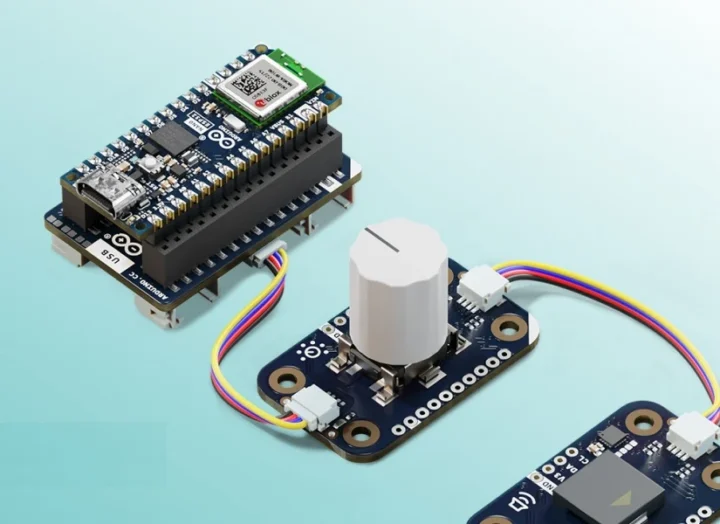The Arduino Nano Connector Carrier is a compact add-on board designed for the Arduino Nano boards to allow easy connection to Qwiic, Grove, and Modulino expansion modules.
The company also announced seven new Modulino nodes that are available individually for user input (e.g. button, knob), sensors (IMU, ToF), audio output, and a short RGB LED strip.

Arduino Nano Connector Carrier specifications:
- Storage – MicroSD card reader (SPI)
- Expansion Interfaces
- 4x Grove analog/digital I/O connectors – 2x analog, 1x I2C, 1x UART
- Qwicc I2C connector
- Double female board header for Arduino Nano series boards
- I/O Voltage – Switch between 3.3V and 5V
- Dimensions – 43 x 28 mm


The board works with Seeed Studio Grove modules and Arduino Modulino nodes connected over the Qwicc connector:
- Modulino Knob – a rotary encoder with push button
- Modulino Pixels – 8x addressable RGB LEDs
- Modulino Distance – a time-of-flight (ToF) sensor to measure proximity
- Modulino Movement – a 6-axis IMU to capture motion and orientation
- Modulino Buzzer
- Modulino Thermo – Temperature and humidity sensing
- Modulino Buttons – three push buttons with LEDs for interaction
If those seem familiar, it’s because the seven modules were sold as part of the Arduino Plug and Make Kit with an Arduino Uno R4 WiFi. So they are not exactly new, and the main change is that they can now be purchased individually.
The solution is designed to be programmed with Arduino or MicroPython and works best with the Arduino Nano RP2040 Connect, Nano ESP32, or Nano Matter boards for IoT projects. A Modulino library for Arduino and MicroPython is available, and pre-configured Arduino Cloud templates.
The Arduino Nano Connector Carrier is sold on the Arduino store for $11.80 US or 13.3 Euros. The Modulino nodes can be purchased for $6.50 to $11.80 or 7.30 to 13.30 Euros, depending on the selected module.

Jean-Luc started CNX Software in 2010 as a part-time endeavor, before quitting his job as a software engineering manager, and starting to write daily news, and reviews full time later in 2011.
Support CNX Software! Donate via cryptocurrencies, become a Patron on Patreon, or purchase goods on Amazon or Aliexpress. We also use affiliate links in articles to earn commissions if you make a purchase after clicking on those links.




